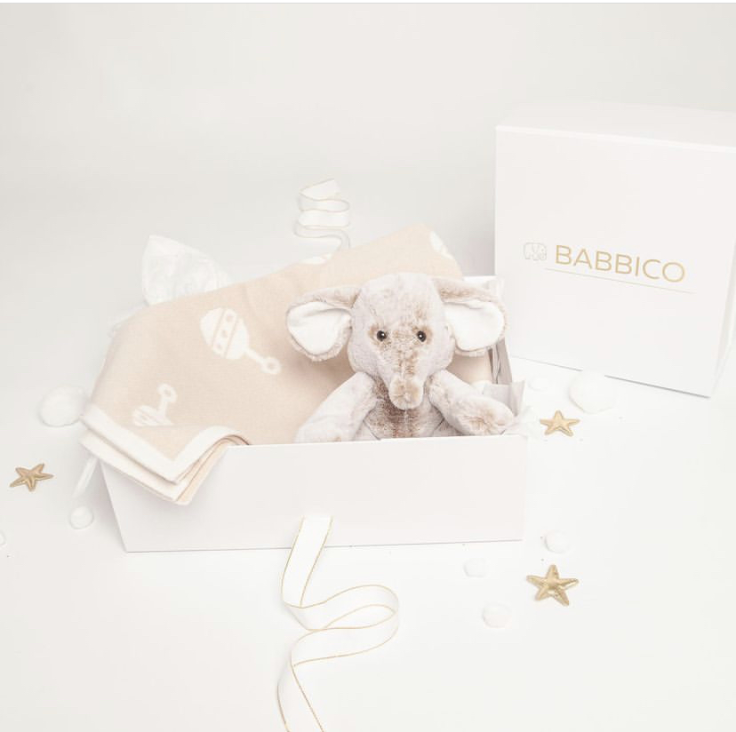Female entrepreneurs are 63% less likely than men to get funding for start-ups
The venture capital industry remains male-dominated, and female led start-ups face systemic biases as they struggle to rally enough funds for their ventures.

When Laura Marsh founded Babbico with her partner in 2020 she had not anticipated the halt finding investments would bring to her business. The idea for Babbico came from companies selling baby goods missing out on current fashion trends, and the potential market for luxury baby clothes. But taking Babbico from a potential idea, to a tangible business was a tough journey for Laura.
"Raising investments for Babbico was painful and still is," she says. Despite reaching out to over 200 venture capital investors and high net worth individuals, she found the path to building a business as a woman littered with roadblocks.

"We were aggressive, we were persistent and we were passionate. We kept going until we got a yes."
When it comes pitching their business - luxury brand for babies, finding an audience of investors seemed tricky.
"It seems VC's and angels are generally investing in the same kind of companies they've supported in the past; these are often tech companies led by men," she says.
Though Babbico eventually took off successfully, Laura is not the only one facing obstacles related to gender while building a business.
Sharing the same struggle also is Saima Duhare who founded Its Halal, a recipe box service delivering freshly pre-portioned ingredients with an easy to follow recipe card.
"For me, feeding people is qadr (fate), and I feel humbled by it," she says. But finding investments was one of the hardest things she endured while starting the business.
"I reached out to angel investors. To start-up investment companies. I also sent in my pitch deck and whilst people liked the idea they weren't willing enough to invest."

Saima struggled to find investors willing to believe in her idea. Being in a niche market, as a Muslim woman of colour whose business targets mostly the Muslim demographic increased her struggle.
"Being a solo entrepreneur, most investors prefer to invest in co-founders," she says. Despite being able to demonstrate her business model, she felt that investors saw her idea as risky.
This is not an uncommon bias women entrepreneurs face. Research has show that during investment pitches, female entrepreneurs are more likely to be asked prevention questions whereas male entrepreneurs are asked promotion questions related to their growth and hopes for the business. These biases limit investors ability to see the potential profits of women owned start-ups..
Like Laura and Saima, data shows that many women entrepreneurs have been struggling with this bias in funding.
Research done by London Business School in 2019 looking into the disparities between male and female founders, primarily linked to venture orientation and predicted growth found that women are 63% less likely than men to secure venture capital funding.
Despite the fact female-founded companies deliver twin as much revenue as per dollar invested according to the European Investment Bank, female entrepreneurs pulled in only 1% of venture capital investment in 2021.
Women in the UK launch businesses with 53% less capital on average than men. In Europe, companies founded by women in 2022 garnered just 1.1% of the total capital invested in venture-backed startups.
The gender index study launched in 2022 identified that 17% of all active companies are led by women, but only managed to attract less than 12% of 3.1million investments made in UK firms.
This, compared to the 61% male owned businesses that attract two-thirds of all investments, this shows the stark gender imbalance in funding and investment opportunities for women in businesses.

Investment specialist for women start-ups Julia Elliot Brown, and founder of Enter the Arena says one of the reasons women face this issue is due to the fact that the industry is very male-dominated.
"Only 15-18% of angel investors are women, and 83% of senior VC investment teams have no women on their investment committee deciding which start-ups to back," she says.
"It's a system that, left unchecked, is stacked against women and other under-represented founders, whether it's race, gender, age, social background or disability," she continues.
Women in business are undervalued despite research showing that they are just as likely to succeed. From the financial inclusion, to lack of venture capital, the struggle to network, to fighting to dispel ingrained societal beliefs about women's capabilities in the business field, it has become harder for women to sustain their entrepreneurial dreams.
Yet Julia remains hopeful both as a female founder herself who struggled to raise £2million for her design your own shoe brand Upper Street despite it being extremely difficult, and as an investment specialist.
Like other women, Julia experienced those prevention questions and was patronised by investors who told her Upper Street was a little lifestyle company suitable to fit around her life as a mother.
"But we mustn't let the headline data stop us from embarking on raising investment in the first place, otherwise the statistics become a self-fulfilling prophecy," Julia says.
In Canada, a group of women from the country's top tech sector are attempting to close the gender funding gap in investment, and allow women to climb the ladder.
From senior positions at e-commerce company Shopify to angel investors, a group of 10 women launched Backbone Angels in 2021 using their own money to fund businesses started by women, non-binary founders, with focus on Black, Indigenous and BIPOC.
Co-founder Arati Sharma tells Forbes in an interview, "We realised there were a lot of programs to help women around education and pitching, and offering support, mentorship, and allyship. But we noticed there were so few that were writing the check. And I think that's one of the most impactful things that you can do for a woman who is starting a business and raising funding – just write her first check."
Their aim is to support women entrepreneurs early on not just by investing but by also providing business or financial advice.
How can women overcome this overall issue of the funding gender gap? Julia advises women entrepreneurs to empower themselves with strategy, skills and the right resources.
For many, networking is one of the reasons they face financial exclusion. Although angel investors like Backbone Angels are attempting to change the field, many women being excluded from male-dominated networks, more often struggle to get adequate funding
"Build your networks as soon as you can," Julia says. "LinkedIn is a powerful tool to connect with potential investors and supporters, and to build your profile as an entrepreneur, all of which will put you in an excellent position when you're ready to raise."
Networking not only ensures women are in male-dominated spaces, but it allows them to help those that come after them.
Ultimately the solution is not just down to women, but fellow male investors who need to scrutinise and change the entire investing system to allow funding opportunities for women.
© Copyright IBTimes 2025. All rights reserved.






















